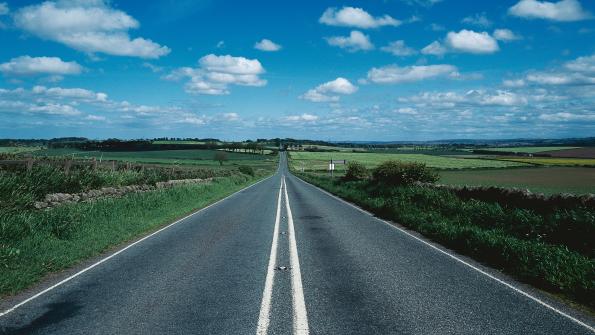Study finds the laws governing drivers lacking
South Dakota may have the most dangerous highways in the nation, according to a new report from the Advocates for Highway and Auto Safety (Advocates).
Every year in the U.S. there are 5.5 million automobile crashes, resulting in more than 33,000 fatalities and 2.3 million injuries, according to the report. The economic cost of these accidents is estimated to be in excess of $230 billion.
To put this in a different context, every day over 90 people are killed on American highways and nearly 6,500 are injured. The Advocates, an alliance of consumer, health and safety groups and insurance companies working to make America's roads safer, argue state laws have a direct effect on promoting safe behavior of drivers and occupants, and that by adopting what it considers basic safety practices, local leaders can save lives.
The 2014 Roadmap of State Highway Safety Laws grades all 50 states and D.C. on what the Advocates see as 15 necessary traffic safety laws. These laws cover occupant protection, child passenger safety, graduated drivers licensing for teens, strict consequences for impaired driving and distracted driving restrictions.
South Dakota ranked worst, with only two of the 15 critical laws enacted. According to the report, South Dakota is missing front and rear primary enforcement seat belt laws, an all-rider motorcycle helmet law, a booster seat law, 6 of the 7 necessary teen driving provisions, an ignition interlock requirement for those convicted of a DUI, a child endangerment law and an all-driver text messaging restriction. South Dakota recorded 16,261 traffic accidents in 2012, the last year with complete data, according to the South Dakota Department of Public Safety. In these crashes, 133 people were killed. Property damage was estimated to be $112 million.
Mississippi followed South Dakota, enacting only four laws, followed by Arizona with five, Iowa with five and Montana with five.
D.C ranked best, enacting 12 of the 15 laws. The study found our nation’s capital was only missing nighttime and cell phone restrictions for teen drivers and a law requiring an ignition interlock for all intoxicated drivers. According to 2011 government data, the district recorded 17,951 total crashes with 27 deaths. Only 0.2 percent of crashes in D.C. resulted in a fatality.
lllinois followed D.C., also with 12 laws. Oregon was next, with 12, followed by Delaware with 11 and Hawaii with 11.
Eight states enacted at least one of the Advocates’ recommended highway safety laws in 2013. West Virginia and Hawaii passed primary enforcement of seatbelts, Hawaii, Maryland and Utah passed cellphone restrictions for teen drivers, and Texas passed a supervised driving requirement for teens. Maine and Tennessee passed ignition interlock requirements for all DUI offenses. Hawaii and Virginia passed all-driver text messaging restrictions.
“We release this report at a critical time as the nation’s motor vehicle fatalities climbed for the first time in 2012 after six consecutive years of decline,” Jackie Gillan, Advocates’ president, said in a statement. “The Roadmap Report provides practical and proven solutions to reduce the highway death and injury toll.”
Download the full report here.
_____________
To get connected and stay up-to-date with similar content from American City & County:
Like us on Facebook
Follow us on Twitter
Watch us on Youtube




















